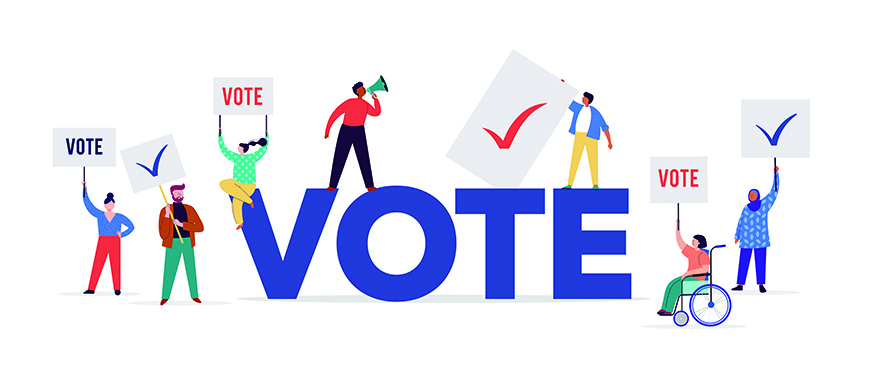On 8 February 2023, more than 50 representatives of the Ukrainian Parliamentary Committee on State Power, Local Self-Government, Regional and Urban Development and the Central Election Commission of Ukraine met with the Central Election Commission of Bosnia and Herzegovina.
This was the first of a series of meetings between representatives of Ukrainian authorities and representatives of election management bodies from other countries that have had experience of holding elections in a post-conflict/post-war period. These meetings are held with the support of the Council of Europe* upon the request of Ukrainian partners and as follow-up to the High-level dialogue on “Good democratic governance in Ukraine: achievements, challenges and the way forward in post-war period” held in Strasbourg, France, on 8 – 9 November 2022.
While opening the meeting, Mr Daniel POPESCU, Head of Democracy and Good Governance Department of the Directorate General of Democracy and Human Dignity of the Council of Europe, amongst other stated that “there is a lot that Ukraine can learn from Bosnia and Herzegovina to organise elections in a post-war situation and we hope that Ukraine will be in that situation as soon as possible, and that free and fair elections will be organised in Ukraine”.
Mr Oleksandr KORNIYENKO, First Deputy Speaker of the Parliament of Ukraine, expressed his gratitude to the Council of Europe for organizing the meeting, as well as the hope for further alike meetings to happen with representatives of countries that had gone through the war and post-war recovery, and emphasized that «We understand that such experience is different for all countries. But this experience is useful for us from the point of view of understanding that our position remains unchanged: democracy in our country should function and develop despite temporary restrictions related to martial law. Our strategic and tactic course is unchanged too, it’s Ukraine’s European integration”.
Having expressed his deepest sympathy with the people of Ukraine, Dr. Suad ARNAUTOVIĆ, President of the Central Election Commission of Bosnia and Herzegovina, stated that “Only those who have gone through the cruelties of war can understand what you are going through now. We all know what it was like in Sarajevo from 1992 to 1995, I was personally in Sarajevo under siege the whole time. Living in constant fear without necessities for life, waiting to disappear, this is something that will remain with me forever. But we need to rise up, we need to invest efforts to renew our country, which is what you have to do now. We all hope that this war will end soon, and the suffering of the Ukrainian people will stop to make way for the renewal of the country”.
Ms Olena SHULIAK, Chairperson of the Ukrainian Parliamentary Committee on State Building, Local Governance, Regional and Urban Development, pointed out that Ukraine is already preparing to different aspects of a post-war life: «We are planning our reconstruction and recovery, we are drafting the policy regarding war veterans, we are planning new economic processes to allow for Ukrainian economy, after the victory, to grow as quickly as possible, and, of course, our plans also include holding democratic fair elections because democracy is the most important issue for the whole Ukrainian society».
While stressing on problems and challenges for the post-war elections in Ukraine, Mr Oleg DIDENKO, Chairperson of the Central Election Commission of Ukraine, mentioned that "It is very important to pay attention to the problems which Ukraine is now facing as a result of the full-scale invasion by the aggressor state. It is important for us to get acquainted with a similar experience, which, unfortunately, other countries have faced in the past, and to learn from it. It is valuable that the leadership of the Parliament of Ukraine, the profile Parliamentary Committee, our international partners perfectly understand the main challenges that Ukraine is facing and will face in the post-war period and are ready to support us in solving them. Only by putting joint efforts into it, we will we be able to prepare as much as possible to the most difficult elections in our history".
Participants of the meeting discussed and exchanged on the challenges faced by Bosnia and Herzegovina in organizing the first post-war elections, as well as practical aspects of organising and conducting such elections, in particular with regard to the legal framework and practical measures to ensure electoral rights of citizens in the post-war period.
During this first meeting, participants focused also on issues related to the election administration, problems and approaches to the formation of voters’ lists, the refugees and internally displaced persons, as well as security issues and criteria used to assess the security environment and the possibility of holding elections in certain locality.
*Series of meetings are organized within the framework and with the support of the Council of Europe project "Supporting democratic post-war elections in Ukraine", implemented within the framework of the Council of Europe Action Plan for Ukraine "Resilience, Recovery and Reconstruction" for 2023-2026.





